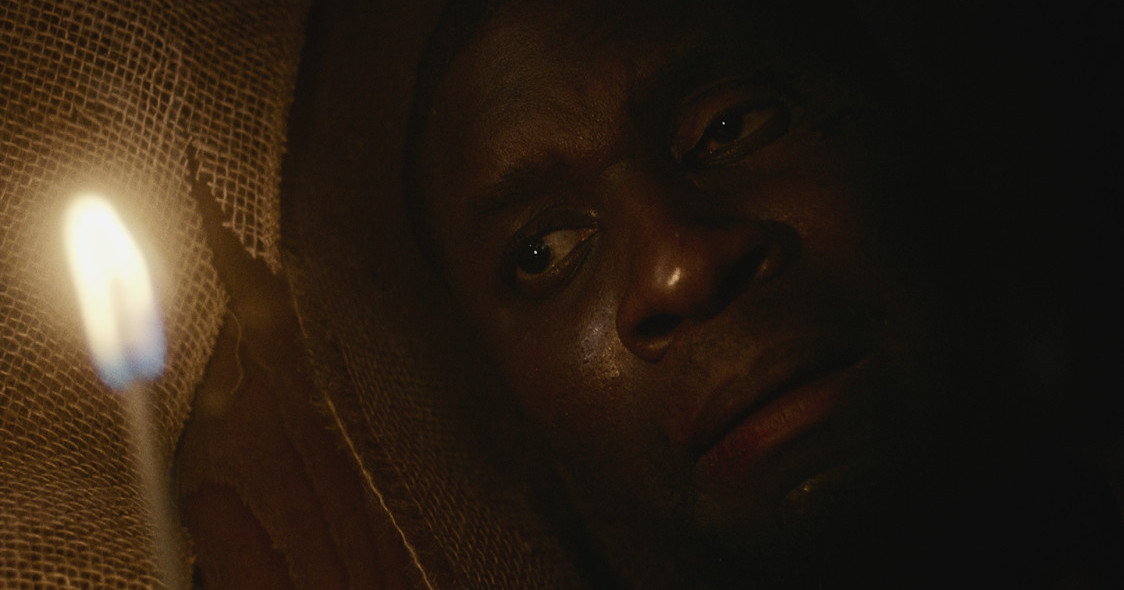The 2nd edition of Papaya Rocks Film Festival will take place on February 27th in London. A few days before the event we interviewed the director of Boxed – one of the films that will be screened during the festival which tells the story of Henry Box Brown and touches on the issue of slavery and human trafficking.
What does it mean for you to have your film screened at the festival?
Wanjiru M Njendu: I am excited to bring this story to a new audience. Sometimes you find the story and sometimes the story finds you. As a director, I always want to make a film that is not only stylized but also sparks conversation. I want my stories to say something about humanity. While Boxed triggered a conversation about Black History, I also believe it to be relevant in the present day. It has been said, “the only thing necessary for the triumph of evil is that the good men do nothing”. Very often society forgets that “them” can very easily become “us”. I chose to make Boxed the way I did to remind the audience that we are accountable when we stand aside. Whether in the past or the present, if we do nothing, we are part of the problem. Boxes and chains can be both physical and mental.
Do you think nerves will set in closer to your screening?
Fortunately, the film has had a solid festival run, so nerves are not too much of an issue right now (laughs). But with each screening, there is excitement on how the audience will receive the film.
Tell us a little bit about your work. How did this film come about?
The idea for Boxed came about via a chance encounter that I had with Karyn Parsons (Fresh Prince of Bel-Air, Major Payne) at the 2018 Hollywood Creative Forum. Karyn runs a company Sweet Blackberry that teaches children Black History via animation. The first story they did was Henry Brown's. During the conversation, I latched onto the idea of telling Henry's story, but as a psychological thriller with the audience staying inside the box with him for the entire duration of his trip. This thought and style were influenced by the films Get Out and Buried. I tried to think inside the box.
When people think “slavery”, they think hundred of years ago, but it is currently happening in Lebanon, where migrant workers constantly report rampant abuse at the hands of their employers.
What was the inspiration behind your screenplay?
With the current environment and conversations happening around reparations to African-Americans, a film like this serves as a reminder of the past and what the people enslaved endured. When people think “slavery”, they think hundred of years ago, but it is currently happening in Lebanon, where migrant workers constantly report rampant abuse at the hands of their employers. Stories of unpaid wages, being locked into the homes where they work, of violence and sexual assault are all commonplace. To know where you’re going, you have to know where you came from. An exhibition at the California African American Museum quotes: “California Bound goes into great detail about the political and economic divides that emerged from debates over California’s statehood and the legal status of slavery. It explains the divide between pro-enslavement southerners who sought to maintain the institution of slavery and the anti-enslavement northerners who desired to abolish it outright.”
What was the hardest scene for you to film?
I wrote the script for Boxed in one sitting. Aside from spell checking and maybe one or two line changes, the film you’re about to see is the film that exploded out of me at 2 a.m. when I awoke from a deep sleep. All the scenes were incredibly hard, but when I wrote the scene where he overhears the rape of an enslaved woman and he had to choose between rising and staying silent to survive and escape, it shattered me. I cried very hard after I wrote this film but that scene – writing it, filming it, having the actors who are good friends narrate the rapists, in post with my editor who also cried the first time she cut the picture and audio together, to every time I see it on screen by myself or with an audience – that scene will break me.
What was the biggest challenge you faced making this film?
I was on a time crunch filming it as I was scheduled for surgery 3 days after we wrapped! I had to make very clear and concise decisions.
Have you always wanted to be a filmmaker?
Always since I was 8 and saw E.T. then I saw The Goonies and my future was sealed! Thankfully I had amazing parents who let me dream and nicknamed me "Magic" so I know I can always make magic! (laughs)
I look at my ideas for a project as seeds and they are the water, compost, sunlight I need to create something incredible.
As a filmmaker, how important is the collaborative process for you?
I’m a huge believer in bringing on my creative team early on and hearing their ideas. I look at my ideas for a project as seeds and they are the water, compost, sunlight I need to create something incredible. I love bouncing ideas off and getting ideas.
Too often I see filmmakers kicking themselves on a decision or a shot they should have changed. I say take that as a lesson for the next project.
Do you have any advice or tips for a fellow filmmaker?
Learn to delegate. You really can't do everything. Know what you have to handle and what you can let go for someone else to do. Trust you have vetted and put a good team together and if someone or something is not working out, learn to let it go early enough to not cause more conflict down the line. Communication is key and it opens frank discussions. And, have multiple things going: it doesn't have to be a specific project, it could be writing or art. I do a lot of coloring books. It helps with not becoming obsessed with the project. Finally, when you are done with the project and you know you did your best, let it go into the world. Too often I see filmmakers kicking themselves on a decision or a shot they should have changed. I say take that as a lesson for the next project.
What are you currently working on?
Currently raising financing for a comedy horror feature (a buddy comedy set in a zombie outbreak) and a coming of age film set in 1995 Brooklyn. In the next few weeks, I am looking to direct 3 short films (if all goes according to plan): a dark comedy, an action thriller and a horror.
What do you hope people will take away from your film?
To be aware, to be human, to be present and to remember: no matter the color or creed, we are all responsible for each other. And equality and humanity for all.
More information regarding the 2nd edition of Papaya Rocks Film Festival can be found here.
see also
- Is the Web Killing the Environment?
Trends
Is the Web Killing the Environment?
- Asif Ken Fernandes: Be creative in many aspects of life
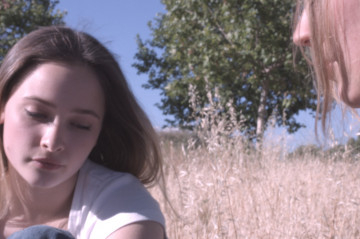 Papaya Rocks Film Festival
Papaya Rocks Film FestivalPeople
Asif Ken Fernandes: Be creative in many aspects of life
- The Genius Face of Film Memes
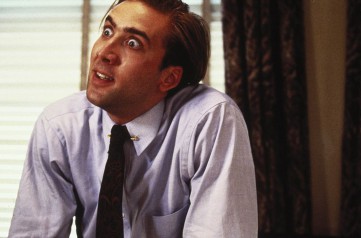
People
The Genius Face of Film Memes
- The Number of Flat-Earthers is Growing and Scientists are Blaming YouTube
News
The Number of Flat-Earthers is Growing and Scientists are Blaming YouTube
discover playlists
-
Tim Burton
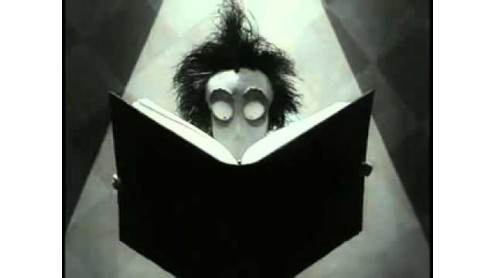 03
03Tim Burton
-
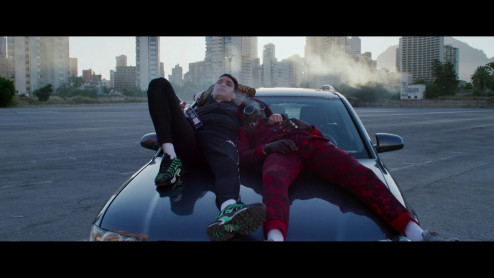 03
03 -
Animacje krótkometrażowe ubiegające się o Oscara
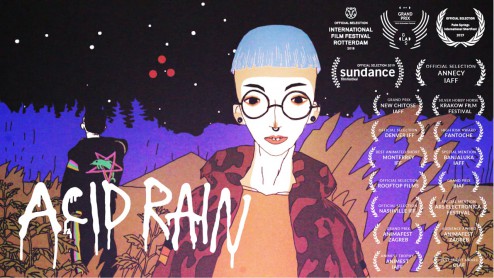 28
28Animacje krótkometrażowe ubiegające się o Oscara
-
filmy
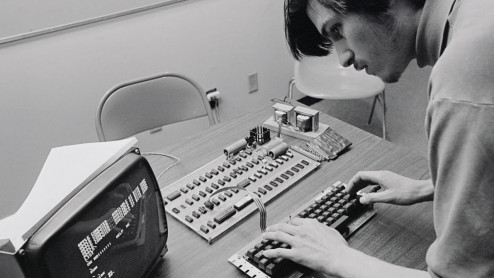 01
01filmy
